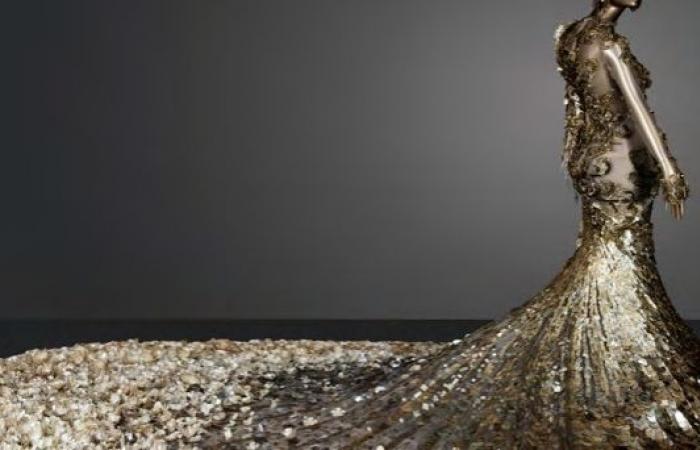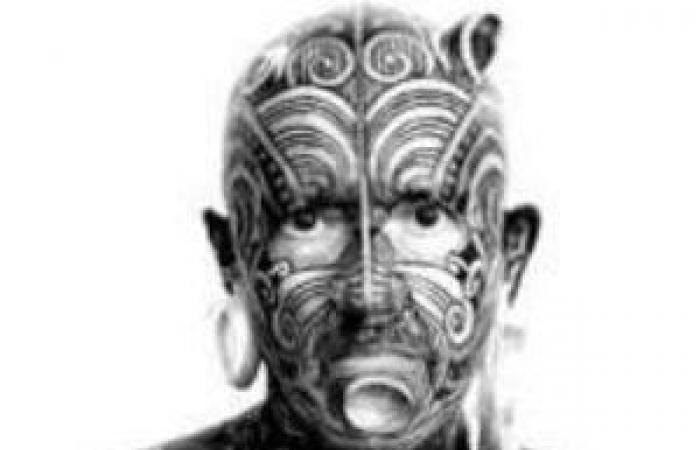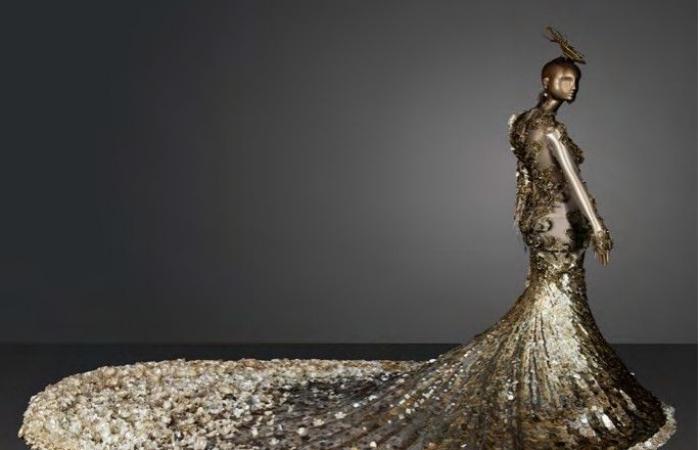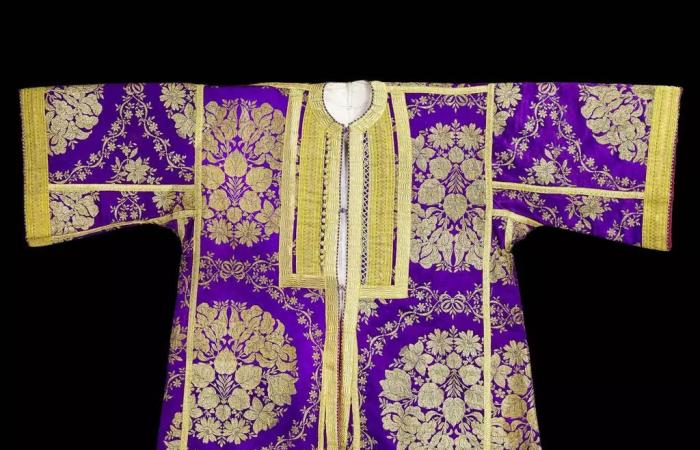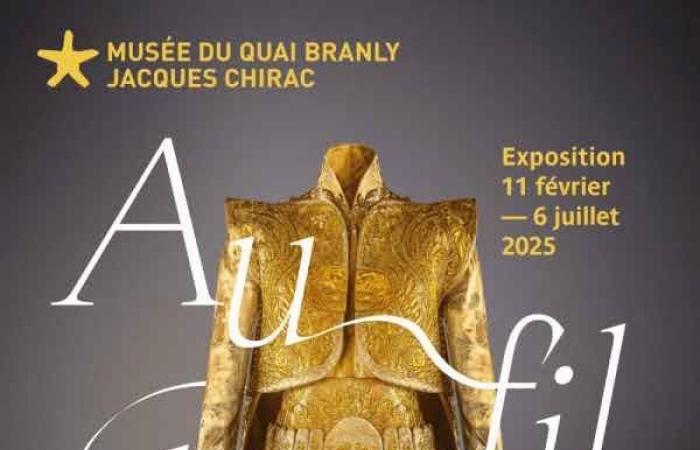Exhibition in Paris –The Quai Branly dresses in gold from Africa and especially from Asia
Fashion makes its appearance here. The staging disappoints. Europe is also missing to obtain a mirror effect.
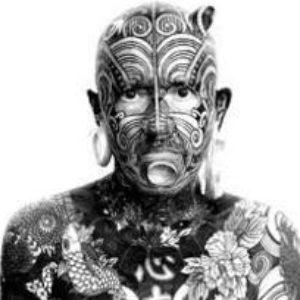
Posted today at 8:41 p.m.
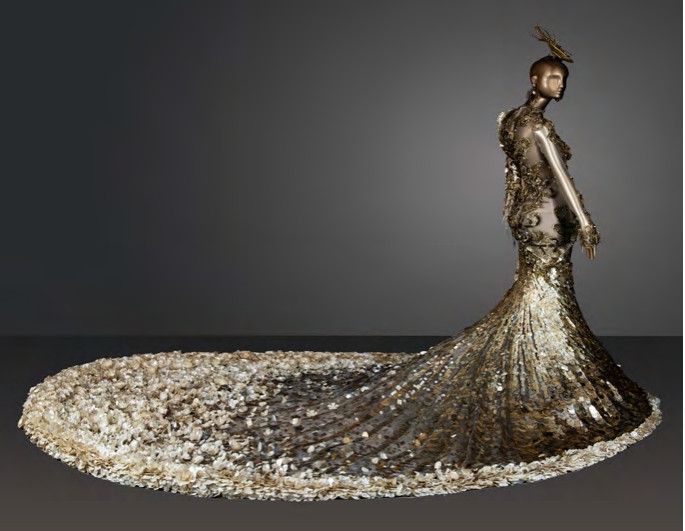
One of the dresses of Guo Pei, which requires thousands of hours of work by hand.
Pupo Pei, the macual, S. amazi, mace de Paris, Musée du quory branly, Paris 2025.
Subscribe now and take advantage of the audio reading function.
Everything that shines is not gold. Especially in terms of textiles. You imagine the costs, especially at this time of inflation where the ounce will soon be worth the price per kilo of a few months ago! There are therefore all kinds of substitutes, more or less economic. Copper yesterday. The Lurex since 1946. Precious reflections were suddenly democratized. There remains the work, especially in Asian countries where the hand remains queen. The Quai Branly Museum, which has been offering since February 11 “Au Fil de l’or”, can thus present the Chinese seamstress Guo Pei. A lady whose creations are reserved for a tiny elite, even if we remain theoretically in a communist country. One of its dresses presented on the set of the ground floor of the institution would have required 20,000 hours of work. Unable to check the account, of course. But the 10,000 sequins garment dazzles by its details seen very closely. Everything unfortunately spoils with distance. Virtuosity disappears. The spectator must only be dealing with a sort of human ingot once the thing is worn.
An ethnic side
All museums today want to show fashion. This is a carrier niche, as the Victoria & Albert of London has understood it for a long time. In Paris, we saw them at the Immigration Museum of the Golden Door. There are at the moment at the Louvre. I just told you about it. The little pleasure will get started on May 7. And we must not forget either the Mad or the Galliera Palace. There was therefore no valid reason for the Quai Branly (today renamed Jacques Chirac…) did not get started. However, it was necessary to find an angle compatible with the exotic missions of the institution. Commissioners Hana Al Banna-Chidic and Magali An Berthon thus chose to speak of an “art of dressing” going “from the East to the rising sun”. The route becomes more or less ethnographic, with a lot of ethnic clothes parading after a short historical introduction. The visitor thus advances country by country, ranging from Africa (especially that of the North) to Asia, which in particular reserves him fabulous Japanese brocades. These are generally already old pieces. End of the 19th century, early 20th century. Gold would suddenly combine in the past if there was not the omnipresence of Guo Pei.
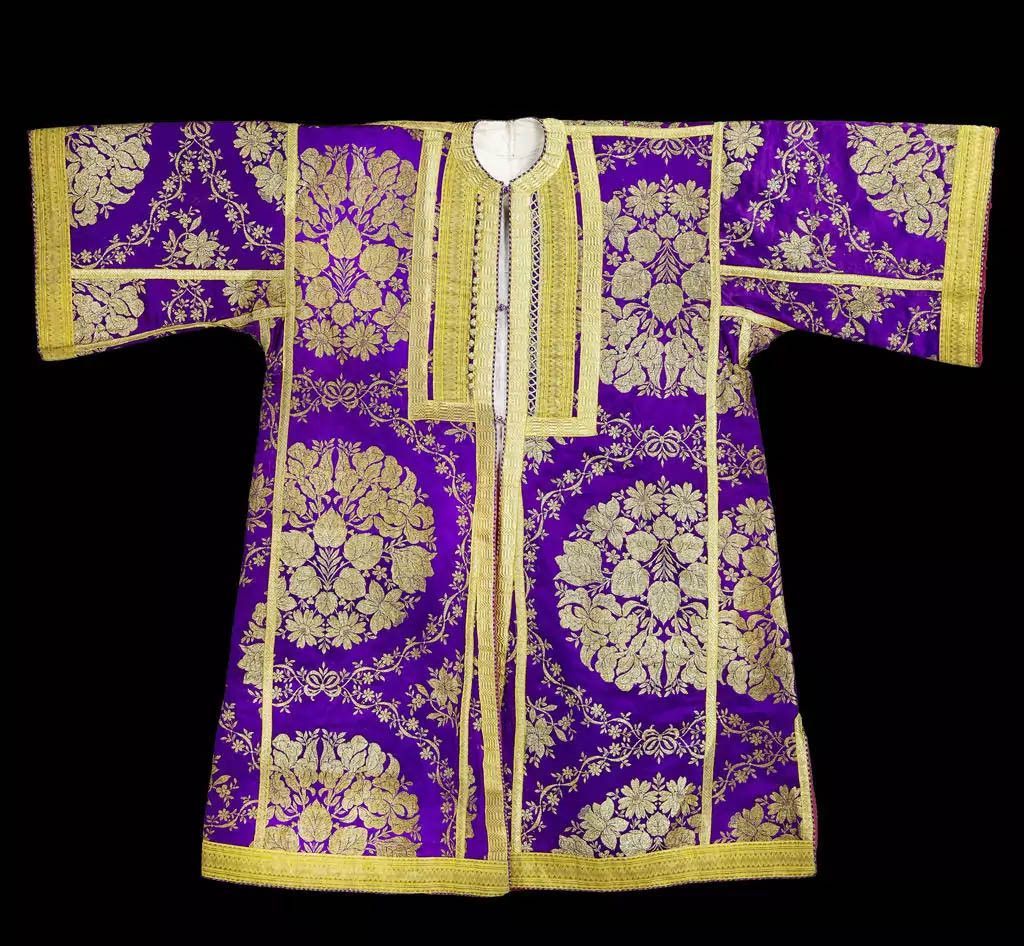
A Middle Eastern Caftan. Europe once produced the same type of patterns.
Claude Germain, press service at the Quai Branly museum, Paris 2025.
The platform on the ground floor of the Quai Branly is often too large. This is the case here. There are a lot of Turkish, Indian or Maghreb outfits. The presentation does not highlight them. It is sorely lacking in imagination. The effect therefore quickly becomes repetitive, and therefore boring. The preciousness always gains to remain parsimonious. It is also almost entirely missing Europe, which has no say in the museum even if certain Swiss masks would seem quite in their place. The thing prevents bonds, which is boring for sewing. It was indeed for a time, around 1500, where the Doge of Venice appeared from velvet chiselled with gold from the Ottoman Empire, while the sultan was covered in Constantinople broches tisted in Italy. If the gold was already precious, there was also the price of the trip at the time. The distant, which is so low -end today, then formed an added value.
Practical
“Over the gold”, Musée du Quai Branly, 37, Quai Jacques Chirac, Paris, until July 6. Such. 00331 56 61 70 00, Site https://quaibranly.fr Open Tuesday to Sunday from 10:30 a.m. to 7 p.m. Thursday until 10 p.m. No need to book during the week.

The poster, with of course a Guo Pei dress.
Musée du Quai Branly, Paris 2025.
Born in 1948, Etienne Dumont In Geneva, studies that have been not very useful. Latin, Greek, law. A failed lawyer, he branched off towards journalism. Most often in cultural sections, he worked from March 1974 to May 2013 at the “Tribune de Genève”, starting by talking about cinema. Then came the fine arts and books. Other than that, as you can see, nothing to report.More info
Did you find an error? Please report it to us.

